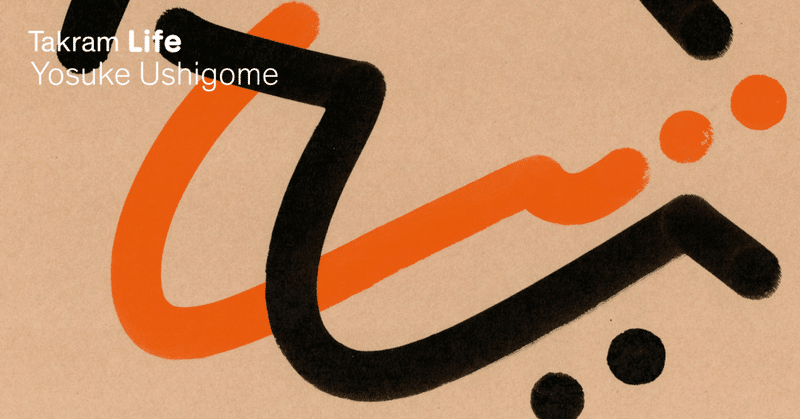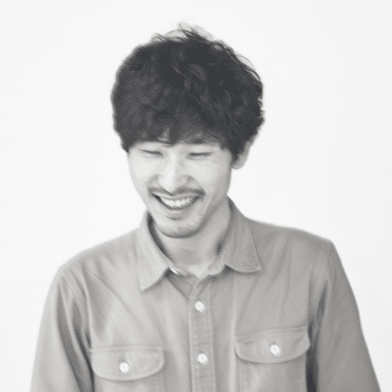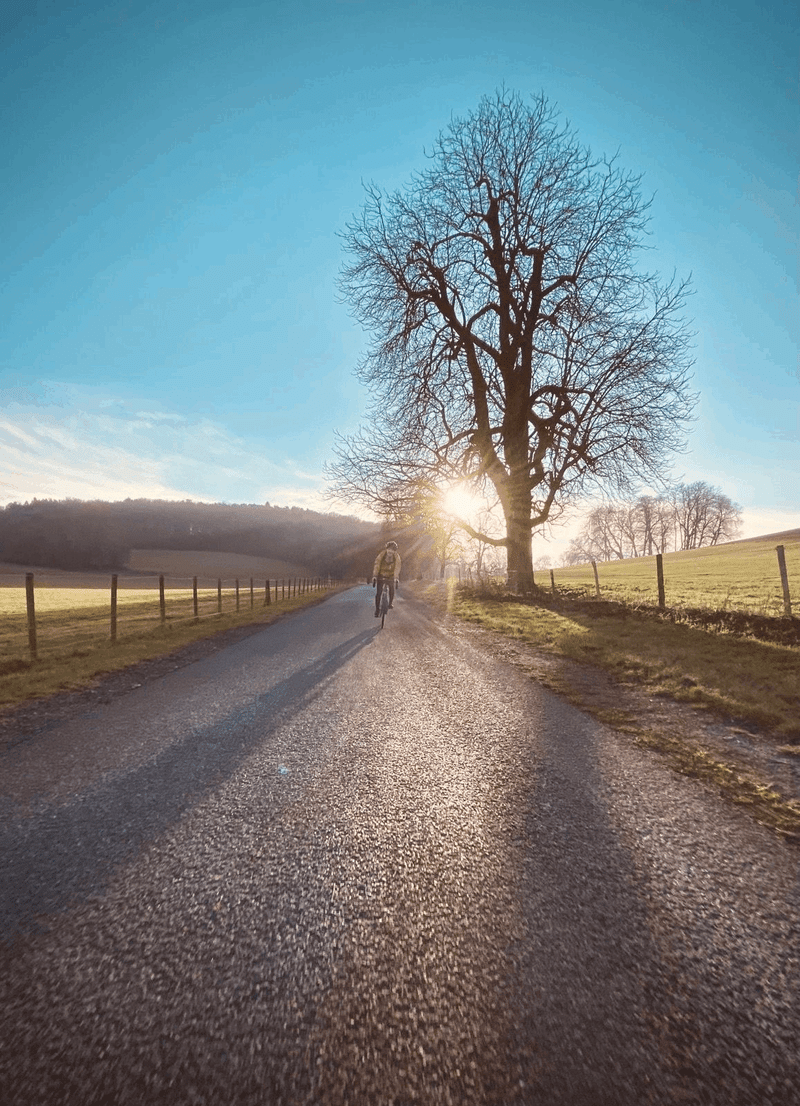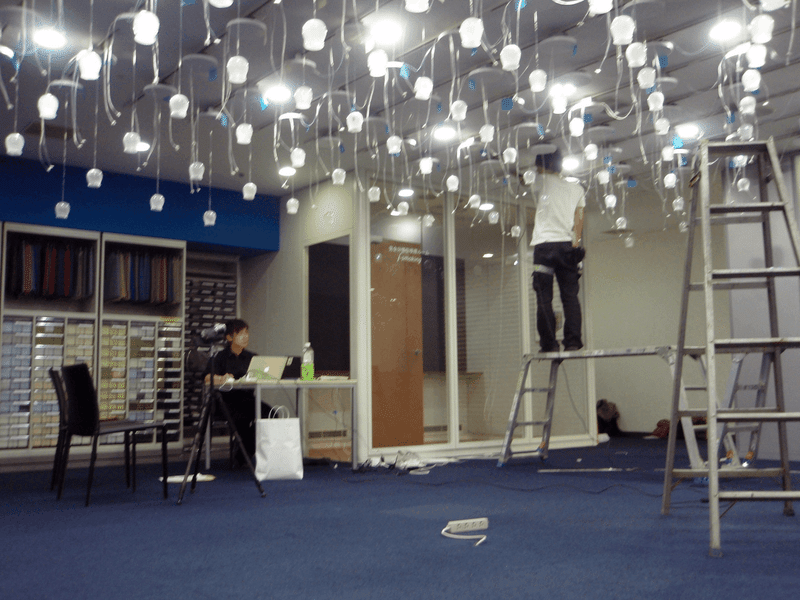
Takram Life#11 Yosuke Ushigome
Takramでは現在、WFH(Work From Home)をメインに働いています。Takramメンバーがどのように自身の働き方や暮らしをデザインしているのかをのぞいてみましょう。
At Takram, we are currently primarily working remotely. In this series, we take a look at how Takram's members are designing their work style and life.

Yosuke Ushigome
未来リサーチ、デジタルプロトタイピング、インタラクションデザインを専門とし、未来についてのより確かな意思決定のためのデザインを行っている。日立製作所と共同で行った「サステナブルな未来へのトランジション」リサーチなど、人・テクノロジー・地球環境との間で起こる出来事に焦点を当てたプロジェクトに数多く携わる。2018年Swarovski Designers of the Future Award受賞。Core77、ICON magazineなどでコラムの執筆も行っている。
Specialized in future research, digital prototyping, and interaction design, Yosuke is designing for more certainty in decision making for the future. He is also involved in many projects, such as “Transition for a Sustainable Future,” joint research with Hitachi, Ltd., that focus on the interplay between people, technology, and the global environment. Received Swarovski Designers of the Future Award in 2018. He also writes magazine columns in Core77 and ICON magazine.
What led you into design?
何か特に印象的なきっかけがあったわけではないと思います。だけど振り返ると、大学2年生の時に行ったフランスの交換留学先のホストファミリーがコルビュジエの建築などに案内してくれたりしたことが、自分の中に漠然とあった「かっこいいことをしたい」という想いとデザインの世界をつないでくれた最初のきっかけかもしれません。
帰国後、自身と同様に理工学部出身のデザイナーを調べたところ、今は東大にいらっしゃる山中俊治さんに辿り着いたんです。そこから山中さんにメールを送り、山中先生のところでのインターン経験を経てTakramと出会いました。
正直、僕はデザインが得意ではありません。僕にとってのデザインは夢のあるテクノロジーを人に伝えたり、あるいは未来をみんなが理解するために対話をするための言語だと思っています。大学時代から長くエンジニアリングやテクノロジーについて学んできたからこそ、テクノロジーが与えてくれるポジティブな未来とネガティブな影響、その両方の視点から、自分や家族にどういう影響があるのかを伝えていきたいと思っています。だから、得意でないけど必要性を大きく感じているし、デザインの世界に身をおきたいと思っているのかもしれません。
I don't think there was a particularly memorable trigger. However, when I was in my second year of university, I went on an exchange program in France, and my host family took me to see Le Corbusier's architecture. In retrospect, that experience may be the first opportunity to connect my vague desire to “do something cool” with the world of design.
After I returned to Japan, I looked up designers who were also graduates of the Faculty of Science and Engineering, and came across Shunji Yamanaka, who is now at the University of Tokyo. I sent him an email, and worked as an intern at his office for a while, then, I met Takram.
Honestly speaking, I'm not very good at design. I would say design is a language for communicating technology with dreams to people, or for having a dialogue to help people understand the future. I have studied engineering and technology for a long time since university days, so I want to communicate the positive and/or negative effects of technology on the future, and how it will affect me and my family. Maybe that's whyI feel a great need for design and want to be in the design world even though I’m not good at it.
What interests you now?
趣味と言ってよいレベルなのかはわかりませんが、昔から自転車が好きです。レースなどにはあまり興味はないのですが、自転車で出かけて風景を見るのが好きですね。東京にいた時も、3泊ほどかけて自転車で金沢を訪問したりしていました。先日も友人とイギリスの田園風景の中で1日かけてサイクリングを楽しみました。
I don't know if I can call it a hobby, but I have loved bicycles for a long time.
Not really interested in racing, I like to go out on my bicycle and see the scenery. Even when I was in Tokyo, I used to visit Kanazawa by bicycle for about three nights. The other day, my friend and I spent a day cycling in the countryside of the UK.

How do you design your working style?
今は、オフィスと家が大体半々くらいのペースで働いています。コロナ前はオフィスは主にクライアントなど外からどう見えるかということを中心に考えていましたが、コロナ後は、スタジオメンバーのみんながどうしたら心地よく過ごせる場所になるのかを中心に考えるようになりました。以前はミーティングルームだったスペースを、1区画プロジェクトルームに変更しました。進行中のプロジェクトのアイディア、前回のプロジェクトのアーカイブ、その時にでていたKeywordなどを書き留めておけるボードを置き、発想が途切れず浮かびやすい空間を心がけています。
僕は普段ロンドンオフィスで働いているため、コロナ前は東京メンバーが全員オフラインで参加しているミーティングに、1人オンラインで参加することも多くありました。その際は「場所」によって生じてしまうメンバーとの距離感を働きづらく感じる場面も多くありましたが、全員がオンラインメインの働き方に移行したことで、よりフラットに働けるようなりました。一方で、働く場所に垣根がなくなったことで、以前よりも「時差」は強く感じるようにもなりました。こればかりは仕方ないのですが、日本に合わせるとどうしても早朝や深夜の勤務が多くなってしまう。以前と比べ、多くの人が家族との時間やプライベートの時間への価値観の変化を感じていることも、時差を大きく感じる要因なのかもしれません。インターナショナルなTakramの強みは引き続き磨いて行き、ロンドンオフィス単独での仕事を増やしていくことでTakram ロンドンメンバーの働きやすさを実現していきたいと考えています。
Now, I work roughly half in the office and half at home. Before COVID-19, I used to focus on how the office looked from outside the company, especially from the clients. However, after COVID-19, I started to think about it more as a place where all the studio members can feel comfortable.I converted a part of the space that used to be a meeting room into a project room. In order to create a space where the members can easily come up with ideas one after another, I placed a board to write down ideas for ongoing projects, archives of previous projects, and key words that were mentioned at the time.
I usually work in the London office, and the distance created by the “location” often made me somewhat uncomfortable working at online meetings, while all the Tokyo members were offline. However, all of us now have shifted to online working and I can also work with no difference in location.
On the other hand, now that there are no barriers to where I work, I feel the "time difference" more strongly than before. There's no way around it, but if I try to adapt to Japan, I will inevitably end up working more early mornings and late nights. Compared to the past, many people's sense of value for family or private time has changed, which may be another reason why I feel the time difference so strongly. While continuing to build on Takram's strengths as an international company, I would like to make it easier for Takram London members to work by increasing the amount of work done by the London office alone.
What is your particular work space?
自宅のスペースの関係上、書斎のように仕事専用の部屋やスペースはなく、ダイニングテーブルで仕事をしています。気分転換をするために棚を使って立って作業したり、1日の中で変化をつけています。
あとは僕は、Zoomの背景はあえてバーチャル背景ではなくリアルな背景を映しているので常に背景を綺麗に保つようにしています。その方が楽しいなと思っていて。相手のパーソナルな部分が垣間見えることでその人との距離感が縮まったり、繋がりのリアリティの要素が増すように感じています。
Due to the space limitations of my home, I don't have a room or space dedicated to my work like a study. I usually work at my dining room table. I often try to vary my work throughout the day by using a shelf and working standing for a change of pace.
Also, I try to keep the background of Zoom neat because I use not a virtual background, but a real one. I believe it's a better way to convey the appeal of the person. I think getting a glimpse of the personal side can shorten the distance and increase the reality of the connection.
What is a book you would recommend?
Takramでは、メンバーの学びを全面的にバックアップするために「Book Purchase」という制度があり、自由に書籍を購入することができます。他のメンバーがどんな本を買っているのかをSlackチャンネルで全員が見ることができ、その時の興味関心を垣間見ることができます。At Takram, we have a "Book Purchase" system to fully support the learning of our members, allowing them to freely purchase books. All members can see what books other members are buying on our Slack channel and get a glimpse of their interests at the time.
複数の友人からおすすめされたことをきっかけに手に取った漫画の「大奥」をおすすめします。物語は家光が日本を治めていた頃、男性のみが発症し死に至る疫病が流行し、それに伴い男性人口が激減するという設定で描かれています。男性が激減したことで、それまで男性が担っていた職業や権威に女性がつくことになり、まさに男女が逆転した世界が描かれています。
僕は30代の男性なので、現代社会においてさまざまな場面で恵まれていると感じています。例えば女性だけがインタビューで子育ての両立を聞かれたり、自分たちが気づかないくらいあたりまえに社会には構造的な格差があると考えているんです。だからこそ気づかないことも多いのだけど、作品を通じてマイノリティの立場で世の中の変化を見つめることができる興味深い作品でした。
I would like to share the manga "Ōoku: The Inner Chambers," which I picked up after several friends recommended it to me. The story is set during the reign of Iemitsu (the third shogun of the Tokugawa dynasty), when an epidemic of a disease that only affected males and caused death, resulting in a sharp decline in the male population. The story depicts a world in which the genders were truly reversed; due to the dramatic decrease in male, women took up occupations and positions of authority that were previously held by men.
I am a man in my thirties, so I feel that I am probably lucky in many aspects of modern society. I think there are structural disparities in society that are so common that we don't even notice them. For example, only women are asked about balancing between working and child-rearing in interviews. It was an interesting piece of work, but reading the piece allowed me to look at changes in the world from the minority's point of view that I usually don't notice.
What do you like about Takram?
Takramでインターンをしていた頃を振り返ると、自動車の運転のエクスペリエンスなどテクノロジーとデザインの融合という領域を区切らずに仕事ができるところがTakramの魅力で、僕がTakramを好きな理由でした。
あれから10年、あの時と比べると組織も大きくなったし、プロジェクトの数も増え、プロジェクトの中身も以前よりも上流から携わることを求められることが多くなったように思います。昔とはTakramの形が変わっているけど、すごく楽しい。Takramの形が変わるにつれて、僕がTakramを好きだった理由も変化しつづけているように感じています。
Looking back on my time as an intern at Takram, being able to work without separating technology and design but integrating them, just like the driving experience of cars, is what attracted me to Takram and is also why I like Takram.
It's been 10 years since then. The organization has grown, the number of projects has increased, and I think I'm being asked to be involved in more projects from the upstream process than before. The form of Takram has changed, yet I still enjoy my work and I feel that the reasons why I like Takram continue to change as well.

Yukos編集後記
今回、ロンドンオフィスで働くUshiさんにお話しを伺いました。取材の中で「支社がある強みを磨きながら、ロンドン単独での仕事も増やさないとここに住んで働く意味が薄れてしまうと思う」そう未来にむけた展望をお話してくれたUshiさん。Takram LondonがもたらしてくれるTakramの強さや深みにワクワク感が高まりますね。
個人的に、住まう場所から受ける価値観の影響は少なくないと感じています。だからこそTakramは個人の選択で様々な土地に住むことができ、そこから価値観や表現の幅を広げていける環境でありたいと思っていますが、現実的には時差など埋められない問題もあります。働き方が大きく変化している過渡期である今、「個」にフォーカスを当てたトピックもを増えてきましたが、「私」がどういう働き方をしたいかという「個」とそれによって「会社(組織)」がどうなっていくのか、どうしていけるのかというバランスが、今後本当の意味でのWork from anywhereという働き方を叶えていくために必要なのかもしれない、そんなことを感じた取材でした。
Ushiさん、取材協力ありがとうございました。
みなさん、今後もロンドンを含めたTakramの海外拠点にも注目してくださいね。
それでは、次回のTakram Lifeもお楽しみにー!
この記事が気に入ったらサポートをしてみませんか?
